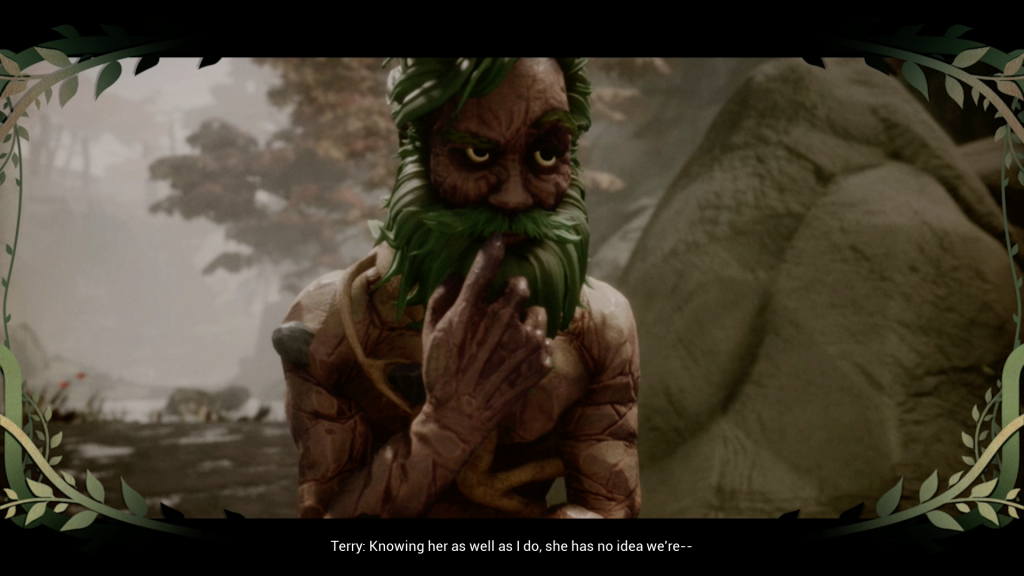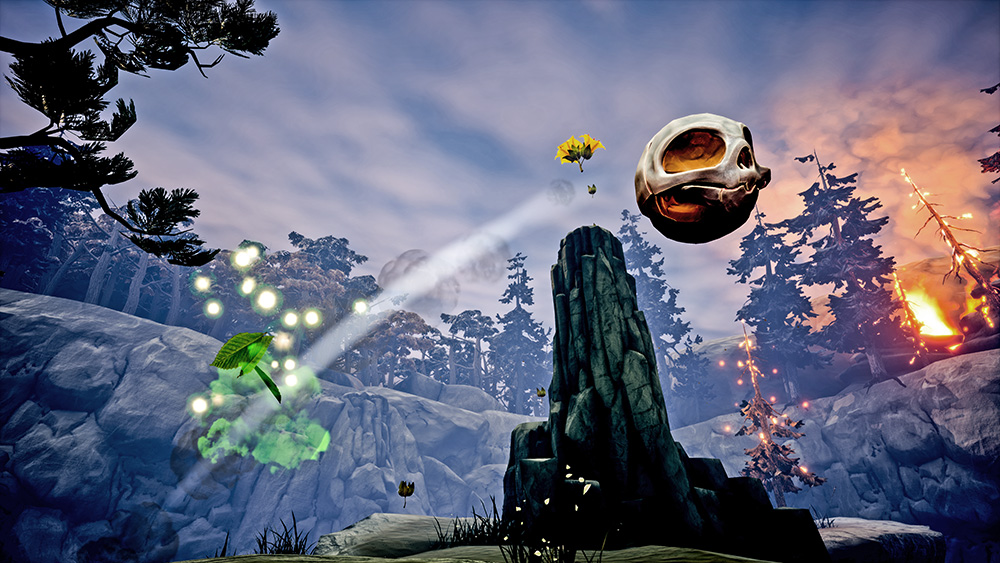Perhaps the best part of the digital age is how it allows more niche experiences to exist. This makes it a lot easier to justify investing in this experience or potentially funding that one when it doesn’t have to rely on retail sales. Skully falls in a weird place, but benefits greatly from this concept. The speedy platformer introduces a lot of concepts, has a unique story and attempts to do something different but is it enough to stand out of was it, as the main character suggests, dead on arrival?
Skully tells the story of a reanimated skull, thrown in the middle of the conflict between the deity’s three siblings. Each of them have their own thing, like Terry is land and Wanda is sea, as Terry largely tries to reunite his family to prevent their conflict from destroying the island they live on. As you progress, the story gets deeper and there are certainly twists and turns, though it’s far from the most engaging experience out there. A lot of the early story is obvious from how everything is presented and it takes a bit for characters to be more fleshed out than Terry being annoying or Wanda frustrated. Whether you find them interesting enough to invest in will vary, forcing gameplay to pick up the slack.

For the most part, Skully is extremely straightforward. Initially you need to transverse the world as a skull that jumps and rolls around, with later stages implementing additional mechanics and transformations allowing you to overcome greater challenges. However, no matter how complex it gets, this is an experience that is really a platformer at its core.
Simply put, unless you’re good at anticipating where Skully is going to land, you’re going to get frustrated. Even if mistakes aren’t a guaranteed failure, they might as well be given how quickly you’ll lose life and die. By the third stage expectations really start to increase, to the point where you either get the concept, you’ll need to ignore a good number of collectibles or get ready for a lot of deaths related to slight mistakes. As a veteran and rather skilled platformer, most deaths were the result of Skully’s speed over issues landing on the right spot. Even the slightest touch can send him speeding to his death and when touching water will kill you in roughly a second, there aren’t room for many mistakes.
Once you gain access to the other forms, levels become a little more forgiving and easier to move, though most of them fulfill a very specific need. This might be killing an enemy or activating a switch, making it easy to see the puzzles objective, regardless of how difficult it is to actually complete. More often than not, it’s an experience defined by looking for specific things and using each ability to overcome them. As a result, it’s rather mechanical.

Levels typically come down to rather basic tasks. Maybe it’s jumping near water or perhaps punching through walls, making most of the challenge and really replay value hinge on how important collectibles are. Typically they’re just to the side or require an annoying task, which for some is worth just ignoring. Naturally, this hurts things, especially when you figure the experience is only so engaging and levels look as bland as they feel.
Skully Verdict
There really isn’t much you can say about Skully. It’s a rolling platformer that relies on rather simple concepts to sell the experience. It’s enough to make the game engaging and in a number of sections challenging, but it really doesn’t do anything to stand out. Story is largely just there, dialogue is a bit on the stiff side and visuals often look underwhelming. This isn’t to say there is absolutely no reason to play Skully, it actually does a number of things well, it just doesn’t stand out in any particular way, ultimately making average feel shine through.
[Editor’s Note: Skully was reviewed on PS4 platform. The game was provided to us by the publisher for review purposes.]
